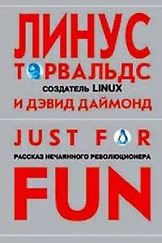Instead of tinkering under the metaphoric hoods of their computers, kids these days are playing too many games, and losing their minds. Not that there's anything wrong with games. They were some of my earliest programs.
There was one in which you were controlling a small submarine in a grotto. It's a very standard game concept. The world moves sideways, pans, and as a player you're the submarine and you have to avoid hitting the walls and monster fish. The only thing that actually moves is the world. The fish move with the world. It all starts moving faster and faster the longer you play. Meanwhile, the grotto gets smaller and smaller. You cannot win this game, but that was never the point. It's fun to play for a week or so and go on to the next game. The whole point is just writing the code to make it all happen.
There are other toys, like model planes and ships and cars and railroads. At one point, Dad buys expensive German model trains. The reasoning is that he never had a model train set as a kid, and that it would be a good father-son hobby. It's fun, but it doesn't come close to the challenge of computers. The only time your computer privileges are taken away is not for spending too much time on the machine but as punishment for something else, like fighting with Sara. Throughout grammar school and high school the two of you are extremely competitive, particularly when it comes to academics.
All the competition yields some good results. Without my constant taunting, Sara never would have been motivated to upstage me by writing six final essays, instead of the five required to graduate from high school in Finland. On the other hand, Sara is to be thanked for the fact that my English is not atrocious. She always made fun of my English, which for years was typical Finnish-English. That's why it improved. For that matter, my mother teased me, too -- but mostly about the fact that I was showing little interest in the female schoolmates who wanted to be tutored by the "Math Genius."
At times we lived with my dad and his girlfriend, at other times Sara lived with my dad and I lived with my mom. At times both of us lived with my mom. By the way, the Swedish language has no equivalent to the term "dysfunctional family," Asa result of the divorce, we didn't have a lot of money. One of my most distinct memories is of the times when my Mom would have to pawn her only investment -- the single share of stock in the Helsinki telephone company, that you owned as part of having a telephone. It was probably worth about $500, and every so often, when things got particularly tight, she would have to take the certificate to a pawn shop. I remember going with her once and feeling embarrassed about it. (Now I'm on the board of directors of the same company. In fact, the Helsinki Telephone Company is the only company where I'm a board member.) Embarrassed was also how I felt when, after I had saved most of the money for my first watch, Mom wanted me to ask my grandfather for the money to pay for the rest.
There was a period when my mother was working nights, so Sara and I had to fend for ourselves in getting dinner. We were supposed to go to the corner store and buy food on our charge account. Instead, we would buy candy and it would be wonderful to stay up late on the computer. Under such circumstances, other boys would have been "reading" Playboy above the covers.
Shortly after my grandfather had his stroke, Mormor didn't feel like taking care of herself. She was bedridden in a nursing home for ten years with what she called "wooziness." When she had been in the hospital for a couple of years, we moved into her apartment. It was on the first floor of a solid old Russian-era "building on Petersgatan, near the gracious park that lines Helsinki's waterfront. There was a small kitchen and three bedrooms. Sara got the big bedroom. The gangly teenager, who was happy with a dark closet and periodic dry pasta, moved into the smallest one. I hung thick black drapes on the windows so no sunlight would seep in. The computer found a home on a tiny desk against the window, maybe two feet from my bed.
I was vaguely aware of Linus Torvalds when an editor of the San Jose Mercury News Sunday magazine asked me to write a profile of him in the spring of 1999. Linux had become something of a buzzword the previous spring, when a succession of companies starting with Netscape had adopted either the notion of open source code or the operating system itself. Not that I had been upon the developments. In the early 1990s I had edited a magazine that dealt with Unix and Open Source issues, so there was a dusty reference sentence floating in my brain. In that reference, Linus was a Finnish college student who wrote a powerful version of Unix in his dorm room and distributed it freely over the Internet. It was not quite an accurate reference. The editor phoned because Linus had just been the star attraction -- and mobbed -- at a recent Linux show in San Jose, which prompted the editor to lure me into the assignment with the words, "'We've got a global superstar right here in, uh, Santa Clara." He faxed over some newspaper reports.
Linus had moved to Silicon Valley two years earlier and was working for the then-secretive Transmeta Corporation, which had for years been developing a microprocessor that promised to upend the computer industry. He somehow had a job that allowed him to maintain his time-consuming position as the ultimate leader of Linux and final authority on any changes made to the operating system. (His followers had, in fact, initiated the legal maneuvering that gave him legal ownership of the Linux trademark.) And he had time to trot the globe as poster boy for the burgeoning open source movement.
But he had become something of a mysterious folk hero. While Bill Gates, everybody's favorite nemesis, was living in splendor in his Xanadu, Linus resided with his wife and toddler daughters in a cramped Santa Clara duplex. He apparently was unconcerned about the fabulous wealth that was being rained upon the flocks of less-talented programmers. And his very presence raised an unutterable conundrum among the stock-option-driven minions in Silicon Valley: How could anyone so brilliant possibly be so uninterested in getting rich?
Linus has no handlers, doesn't listen to voice mail, and rarely responds to email. It took weeks for me to get him on the phone, but once I did he easily agreed to an interview at his earliest convenience, which was about a month later: May 1999. Having developed a professional passion for putting interview subjects into compromising positions, I decided that a Finnish sauna might be the perfect backdrop for the profile. In a rented Mustang convertible, with a photographer at the wheel, we headed over to Santa Cruz and what was recommended as the Bay Area's best sauna, which was on the grounds of a New Age/nudist retreat.
He was armed with an opened can of Coke as he emerged from the innards of Transmeta's offices in an anonymous Santa Clara office park. He wore the programmer's uniform of jeans, conference T-shirt, and the inevitable socks-and-sandals combo that he claimed to have favored even before ever meeting another programmer. lilt must be some programmer's law of nature," he reasoned when I asked about the footware choice.
The first question to Linus, as we sat in the backseat, was a throwaway. "Are your folks in technology?" I asked while fiddling with my tape recorder.
"No, they're all basically journalists," he replied, adding: "So I know what scum you are. "
He didn't think he could get away with that.
"Oh. You come from scum?" I responded.
The world's best programmer laughed so hard that he coughed out a spray of Coke onto the back of the photographer-driver's neck. He turned red. This would be the start of a memorable afternoon.
Читать дальше












